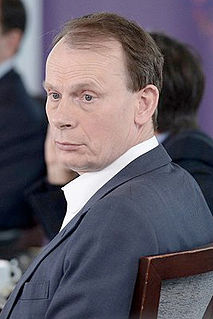Top 20 Quotes & Sayings by Andrew Marr
Explore popular quotes and sayings by a British journalist Andrew Marr.
Last updated on April 15, 2025.
In the end, does it really matter if newspapers physically disappear? Probably not: the world is always changing. But does it matter if organisations independent enough and rich enough to employ journalists to do their job disappear? Yes, that matters hugely; it affects the whole of life and society.
The great background question about the Labour governments of the sixties is whether with a stronger leader they could have gripped the country's big problems and dealt with them. How did it happen that a cabinet of such brilliant, such clever and self-confident people achieved so little? In part, it was the effect of the whirling court politics demonstrated by 'In Place of Strife'.

















